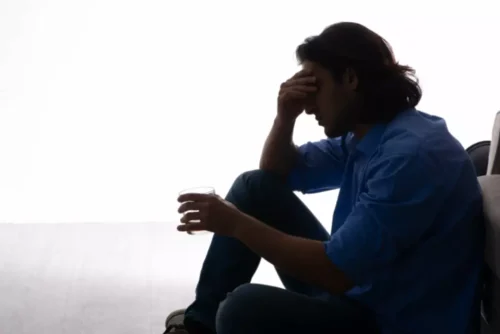
Then one day at work I was walking past a bunch donuts some evil salesman had left in the break room when I realized that I no longer physically craved sugar. But I realized I wanted the emotional payoff more than I physically craved the sugar and lard. I really like the analogy that the physical part of our disease is an “allergy of the body”. Because its exactly like allergies; For example, some people can rub their face in a cat’s fur and it doesn’t bother them a bit.
- Walking meditation, using labyrinths, and mandalas are also effective methods for finding peace and clarity.
- Until trauma-related information is reconciled with prior beliefs, symptoms of PTSD persist while the trauma remains in active memory (Horowitz, Wilner, & Alvarez, 1979).
- The trauma and non-trauma groups did not significantly differ in age, gender, or racial/ethnic identification.
- This is not to say that all HSPs or empaths will develop complex grief, but for some, there is certainly the possibility – especially if there has been a history of unresolved trauma.
- This deep-seated sense of disconnection and unrest drives the cycle of addiction and self-destructive behaviors.
Spiritual vs Religious

David Roger Clawson, M.D., is a Physical Medicine and Rehabilitation physician with an interest in natural prevention and healing strategies for health and wellness. Foundational to this practice is the understanding of threat and defensive physiology versus safety and restorative physiology. In these times personal threat load is extremely high and is being reflected in systemic dysfunction.
The Concept of Spiritual Disease
After overcoming homelessness and drug addiction, Adam found his life’s purpose in helping addicts find the same freedom he found. As Founder and Executive Director of the 501(c)3 nonprofit, Recovered On Purpose, and Managing Partner of Behavioral Health Partners, Adam has helped thousands find freedom from addiction all over the world. Community-based organizations often offer support groups tailored to spiritual recovery, providing a network of individuals who understand the challenges and triumphs of the recovery journey. Finding the right support system can make a significant difference in maintaining sobriety and fostering spiritual growth. By embracing these steps and principles, we can experience a profound transformation and find peace and purpose in our recovery journey. Grasping the way spiritual malady drives addiction is vital to break this cycle.
Take Your First Step To Recovery
And unless this malady is recognized, and a course of action (the Twelve Steps) is taken to enable God to remove it, the root of our alcoholic illness can lie dormant and burn us when we least expect it. When you ask them to describe what they mean by that statement, they seem to have a firm grasp on the fact that we alcoholics suffer from “an allergy of the body and an obsession of the mind” — that once I put any alcohol in my system whatsoever it sets off a craving for more alcohol. Thankfully, the “spiritual malady” is no longer a “missing piece” of Step One for me. When you ask them to describe what they mean by that statement, they seem to have a firm grasp on the fact that we alcoholics suffer from “an allergy of the body and an obsession of the mind” — that once I put any alcohol in my system whatsoever it sets off a craving for more alcohol. The present findings suggest that trauma exposure results in PTSD symptoms in part through the negative cognitions of spiritual struggle.
The spiritual malady and addiction
Coefficients represent unstandardized parameter estimates (SE). Participants were categorized into trauma and non-trauma groups based on interim trauma exposure. If a participant endorsed on the TLEQ at Time 2 having experienced an event at least one time and endorsed the follow-up question indicating fear, helplessness, or horror in response to the event, he or she was considered to have experienced trauma. If at Time 2 a participant https://ecosoberhouse.com/ endorsed only an event on the CSLES, or endorsed an event on the TLEQ but reported no fear, helplessness, or horror in response, he or she was categorized into the non-trauma group. If we are willing to look beyond the skeptics and critics of 12-step recovery and the blueprint for living that it offers, we see that the two interact—that spirituality supports recovery and that 12-step involvement, in turn, supports spirituality.

The Mental Obsession

The concept of spiritual disease is deeply embedded in the philosophy of AA. It is rooted in the idea of being spiritually sick—a condition that profoundly affects our soul and emotional nature. This spiritual disease is not a physical ailment but a profound affliction of the spirit, manifesting as a sense of emptiness and disconnection from oneself and the world. When these physical, mental, and spiritual components come together, an individual spiritual malady with alcohol use disorder will be rendered powerless to arrest a vicious cycle of obsessions, cravings, and alcohol abuse. On page 62 the text explains that “Selfishness-self-centeredness! That, we think, is the root of our troubles.” This “SELFISHNESS-self-centeredness” (or the “ego”, as some people refer to it) drives us to respond to life situations with the above “symptoms” as well as disorders and addictions other than alcoholism.
- For instance, negative appraisals of the trauma could lead to initial symptoms of PTSD, and negative religious appraisals of the PTSD symptoms themselves could relate to their long-term maintenance.
- Same thing with alcohol; some people can have a couple beers, no problem.
- This is why 12-step organizations believe it is not possible to conquer alcoholism using willpower alone.
- Most often, religious meaning systems provide a helpful vehicle for making sense of seemingly random, nonsensical, or tragic events, by seeing them as part of a larger, more benign plan (Frazier et al., 2004; Pargament, 1997).
- I’ve tried to become more spiritual but all I think now is that I don’t want to stay on this plane of life anymore.
The analyses control for pre-event PTSD symptoms to allow for examination of change in PTSD symptoms in response to the index event. Parallels between spiritual struggle and established (secular) negative cognitive responses to potentially traumatic events clearly exist, as does a small body of literature associating spiritual struggle with greater PTSD symptoms. However, research elucidating the character and directionality of the relationship between struggle and PTSD symptoms is needed. Prior studies have not assessed subscales of spiritual struggle separately to isolate possible differences in relationships with PTSD symptoms, and subtle differences exist among expressions of spiritual struggle, which may result in unique relationships with PTSD symptoms. Moreover, studies of spiritual struggle and PTSD to date have been cross sectional, precluding the inference of causal direction in the relationships among trauma, PTSD symptoms, and spiritual struggle (e.g., .Bradley, Schwartz, & Kaslow, 2005).

Find a mirror in your house, close the door to ensure privacy, and gently gaze at yourself. If this is too painful, feel free to stop and try this a little bit every day until you’re comfortable with looking into your eyes. As you stare into the mirror, enfold yourself in a hug and cradle yourself. Eventually, as you practice this activity, you may like to say something compassionate but powerful to yourself such as, “I’m here for you,” “We can do this,” “I’m getting there,” “We’re strong.” See our list of morning affirmations for anxiety and depression sufferers for inspiration. Go slowly, and if at any time you feel that any of these suggestions are too much too soon, stop immediately and take care of yourself. Complicated grief can serve as an initiation onto your spiritual path through the Dark Night of the Soul.
On page 62 the text explains that “Selfishness-self-centeredness! That, we think, is the root of our troubles.” This “SELFISHNESS-self-centeredness” (or the “ego”, as some people refer to it) drives us to respond to life situations with the above “symptoms” as well as disorders and addictions other than alcoholism. The alcoholic who evolves spiritually receives inner wisdom – an intuition and understanding – a noetic mindset that goes beyond the traditional five senses. They also experience an ineffable quality from becoming spiritual – one where their feelings go beyond mere words.
- By focusing on spiritual healing, we can begin to alleviate this mental compulsion and find peace.
- The development and maintenance of PTSD symptoms have been shown to relate to particular negative cognitions after trauma exposure, including negative appraisals of the trauma and its implications (Dunmore, Clark, & Ehlers, 2001; Ehlers, Mayou, & Bryant, 1998).
- Those who have sensitively wired nervous systems (highly sensitive people) and deep feelers (empaths) are at risk of developing complicated grief simply due to their personality type/disposition.
- The threatened given safety will see, understand, connect, bond, and thrive.
- Through prayer, we tap into the ancient practice of communing with something deeper within us.
No amount of reason or rationalization with someone under threat, who is physiologically incapable of reason in that moment, will work. No amount of reason, rationalization, or punishment, will restore their sight. Giving a threatened person safety instead of reason, rationalization, or punishment, is the equivalent of giving a blind person sight. The threatened given safety will see, understand, connect, bond, and thrive. Understanding spiritual malady and its impact on recovery is essential for anyone battling addiction.

